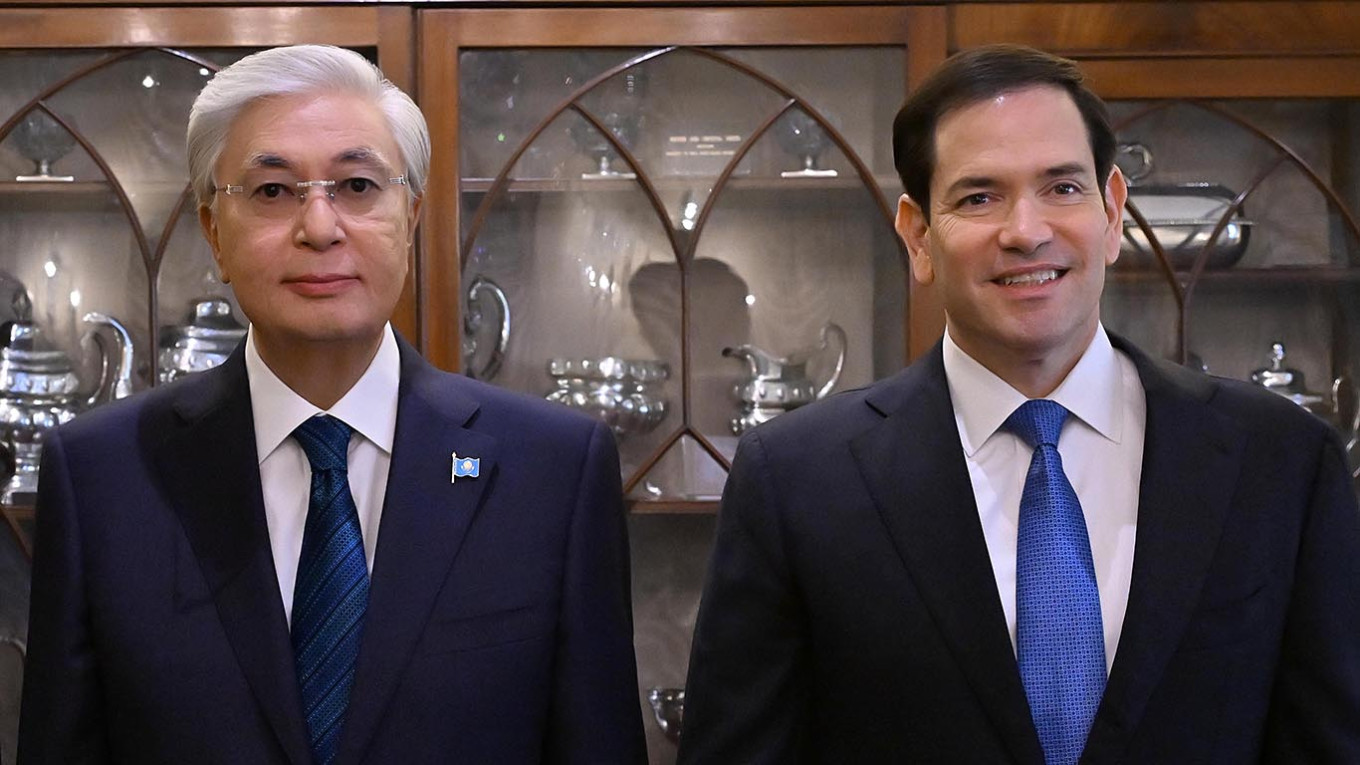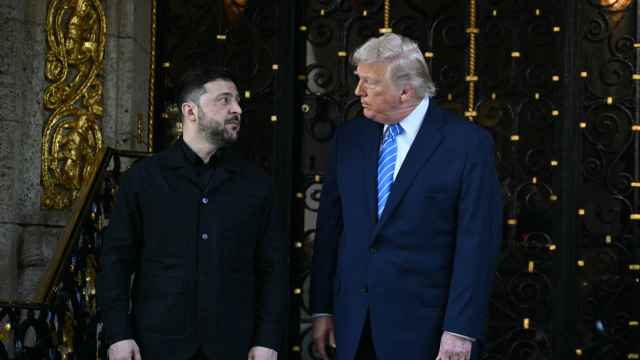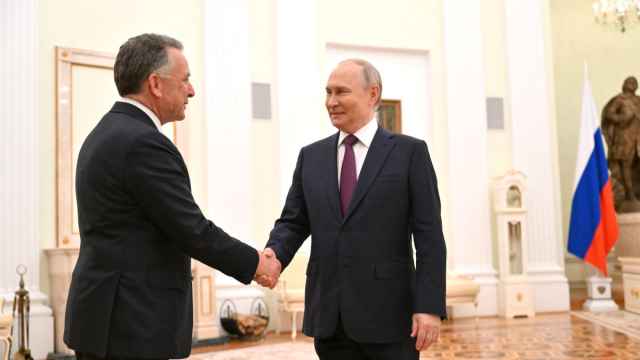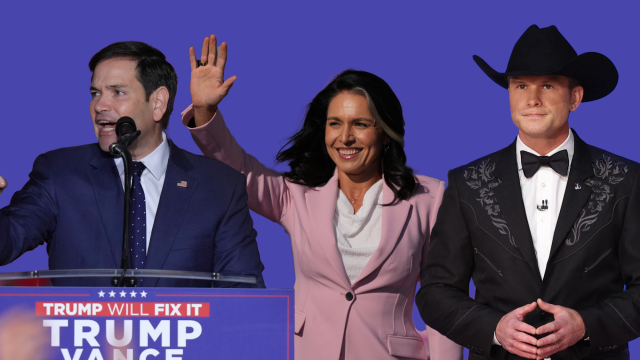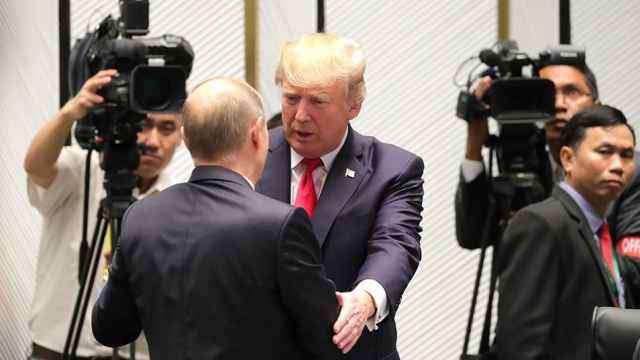This story was originally published by Eurasianet.
Central Asian leaders are traveling to Washington for a summit with President Donald Trump carrying a diverse agenda that extends beyond trade topics.
Uzbek President Shavkat Mirziyoyev was the first regional leader to land in Washington, arriving on Nov. 4. He was due to meet with U.S. lawmakers and corporate executives on Nov. 5 before participating the next day in the White House summit, which is occurring under the C5+1 format.
Trump is widely expected to focus summiteers’ attention on his pet issue — expanding U.S. access to Central Asia’s abundant reserves of critical minerals and rare earths. High-level, closed-door discussions on the topic have been taking place since the summit was first confirmed on Oct. 26. The same day as that announcement was made, two top U.S. diplomats began a four-day tour of Uzbekistan and Kazakhstan. And on Nov. 4, Kazakh Energy Minister Erlan Akkezhenov met with Doug Burgum, the U.S. secretary of the interior who also chairs the National Energy Dominance Council.
Despite the flurry of discussions, regional experts aren’t expecting the Nov. 6 summit to yield a major announcement on the critical minerals issue. The “quick, short notice” nature of the summit means it “is unlikely to make much of an inroad” on such a “sensitive and complex” issue as the development of the critical minerals sector, predicted Emilbek Dzhuraev, a political scientist at the OSCE Academy in Bishkek.
To set a constructive tone for cooperation, U.S. officials should recognize Central Asian states’ multi-vector stance on critical minerals and other trade issues. A zero-sum approach in which the U.S. seeks to dominate access to minerals and rare earths is unfeasible, Dzhuraev said, adding that China’s role as the region’s dominant trade partner ensures that such a strategy would backfire.
Trump should reassure Central Asian leaders that deeper relations with Washington “do not require shutting the door on others,” he said. “[Russian leader Vladimir] Putin too will be very closely watching … what gets said in Washington.”
The tight timeframe for the meeting is likely to leave Central Asian leaders little time to raise some issues that they would like the Trump administration to address.
A topic relating to trade that regional leaders want the summit to consider is the Taliban regime in Afghanistan, which stands between Central Asia and access to a seaport. Kazakhstan and Uzbekistan have so far led recent efforts to engage the Taliban, having an eye not only on opening new trade possibilities but also out of the realization that Afghanistan’s cooperation is needed to address pressing regional issues, including the increasing scarcity of water resources.
Since the Taliban’s return to power, the U.S. has refused to recognize the government, due mainly to its repressive policies, especially concerning women. Central Asian leaders think the U.S. and European Union should adopt a more flexible approach, if trade objectives are to be reached.
Central Asian leaders are “of the opinion that the Taliban needs to be engaged with, that the complete disengagement and excommunication of Kabul has not been productive,” Dzhuraev said.
Central Asian leaders may also seek to discuss country-specific issues during the summit. Kyrgyz leader Sadyr Japarov, for example, will likely try to raise the topic of U.S. immigration policy and non-immigrant visa restrictions on Kyrgyz citizens, who are no longer eligible to receive 10-year, multi-entry visas and instead must apply for single-entry, 90-day visas. Turkmen citizens are subject to similar restrictions.
Dzhuraev suggested that Japarov may also try to raise the subject of U.S. sanctions on the Kyrgyz banking sector, which both U.S. and British officials have cited for helping Russia obtain equipment and technology that helps maintain its war effort in Ukraine.
Kazakh President Kassym-Jomart Tokayev will probably try to rally collective action to address a looming environmental crisis — the Caspian Sea’s receding water level. To get the Trump administration’s attention, he may frame the issue as a threat to trade along the Middle Corridor, the development of which is a U.S. policy priority, given that lower water levels complicate cargo ship access to some major ports, including Aktau. Kazakh officials also want to receive assurances from the Trump administration that it will work with the U.S. Congress to remove Jackson-Vanik trade status on Astana.
Kazakhstan and Uzbekistan have expressed a desire to expand cultural-educational exchanges to help accelerate the development of a Central Asian managerial class, equipped with the skills and expertise needed to help both countries modernize their economies.
One topic not likely to be discussed at the summit is human rights/political freedom, Dzhuraev indicated. Since Trump’s return to the White House in January, human rights issues have taken a back seat to trade deals in U.S. diplomacy.
Trump’s past record on rights-related issues suggests that he is unlikely to act on an open letter published by a Tajik opposition group, the Movement for Reform and Growth. In the Nov. 5 letter, the group asks Trump to raise the issue of political repression in Tajikistan during the summit with the country’s leader, Emomali Rahmon, and urge the release of political prisoners.
“Ignoring this crisis [of political repression in Tajikistan] can lead to destabilization of Central Asia, strengthening extremism and causing the loss of strategic control in the region, where authoritarian forces are already actively competing,” the letter contends.
A Message from The Moscow Times:
Dear readers,
We are facing unprecedented challenges. Russia's Prosecutor General's Office has designated The Moscow Times as an "undesirable" organization, criminalizing our work and putting our staff at risk of prosecution. This follows our earlier unjust labeling as a "foreign agent."
These actions are direct attempts to silence independent journalism in Russia. The authorities claim our work "discredits the decisions of the Russian leadership." We see things differently: we strive to provide accurate, unbiased reporting on Russia.
We, the journalists of The Moscow Times, refuse to be silenced. But to continue our work, we need your help.
Your support, no matter how small, makes a world of difference. If you can, please support us monthly starting from just $2. It's quick to set up, and every contribution makes a significant impact.
By supporting The Moscow Times, you're defending open, independent journalism in the face of repression. Thank you for standing with us.
Remind me later.


